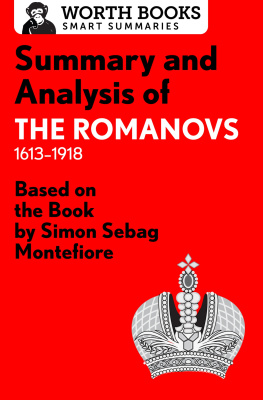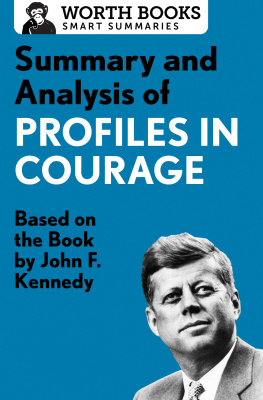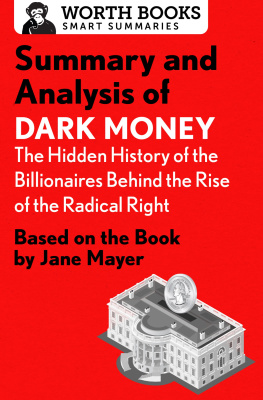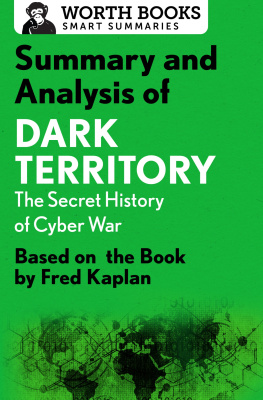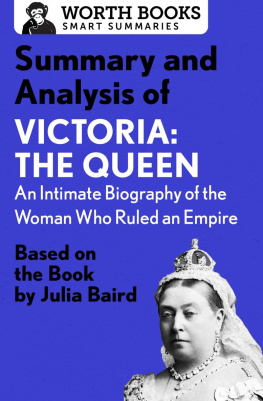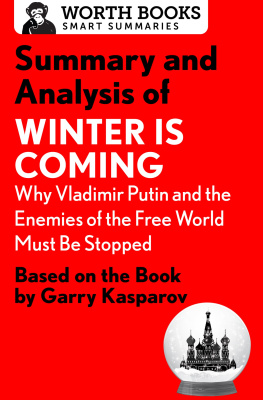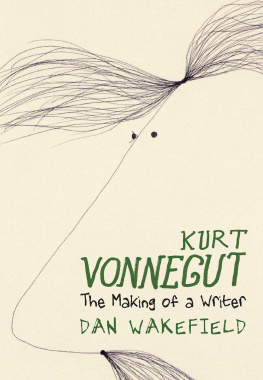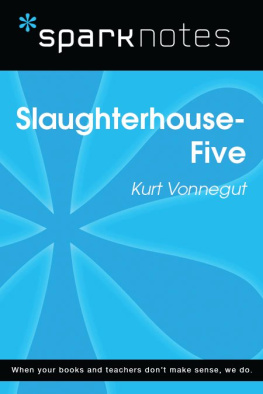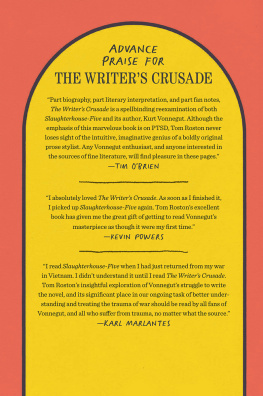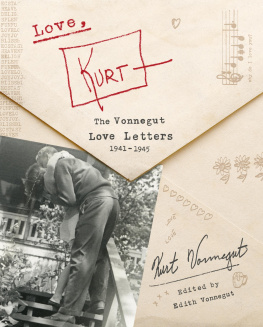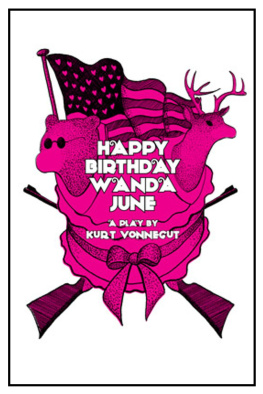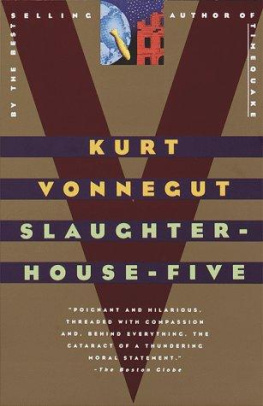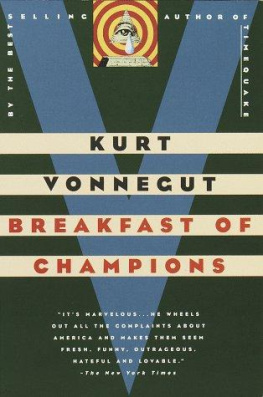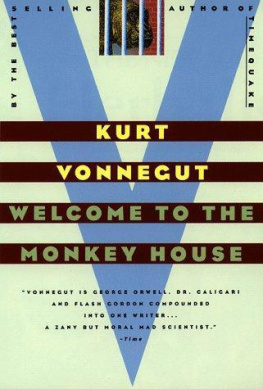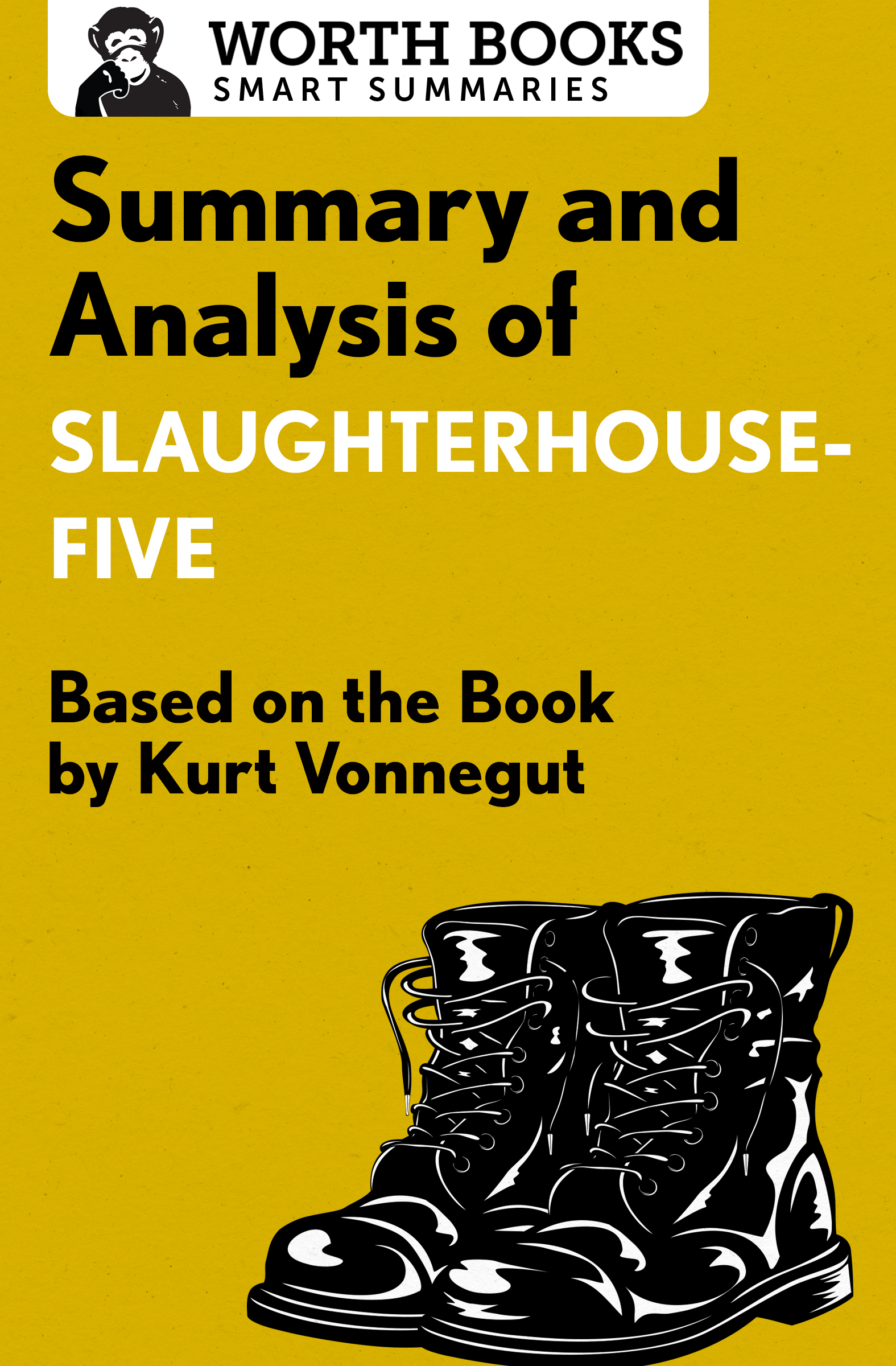Summary and Analysis of
Slaughterhouse-Five
Based on the Book by Kurt Vonnegut

Contents
Context
Published in 1969 at the height of the Vietnam War, Slaughterhouse-Five quickly became an icon of the antiwar movement. Its absurdist, black humor struck a nerve with readers, particularly the younger generation at the time. Widely regarded as a masterpiece, it was also Vonneguts first major commercial success. His previous novels and short stories had generated positive responses with readers and critics, but it was Slaughterhouse-Five that brought him widespread notoriety. Vonneguts use of a nonlinear narrative, an unreliable narrator, and a metafictional style place this book squarely among the great works of postmodernism. Today, it ranks among the great antiwar novels, and many consider it to be one of the best books of the twentieth century.
Kurt Vonneguts experiences in World War II inspired Slaughterhouse-Five . Near the end of the conflict, he was captured by the Germans and transported to Dresden, where he and fellow prisoners were housed in a slaughterhouse Schlachthof-fnf , or Slaughterhouse-Five. In 1945, he witnessed the Allied firebombing of Dresden and survived with the other POWs in a meat locker three stories underground. When he reemerged, he saw that the city had been burned to the ground.
In addition to its antiwar themes, the novel questions why the American public remained largely ignorant of an Allied bombing that was just as horrific as the atomic attacks on Japan.
Overview
An exploration of fate, free will, and the meaning(lessness) of life, Slaughterhouse-Five stands as one of the twentieth centurys greatest antiwar novels.
The protagonist, Billy Pilgrim, is a World War II prisoner of war, a survivor of the Allied bombing of Dresden, as well as an optometrist, husband, father, Lions Club president, and an alien abductee to the planet Tralfamadore. The Tralfamadorians exist in four dimensions, perceiving time to be happening all at once. Billys encounter with them results in him becoming unstuck in time and now he jumps, seemingly at random, to different parts of his life. He sees his childhood, his death, his life after the war, his children growing up, his life as a captive on Tralfamadore, and most critically, the bombing of Dresden.
Billys experiences as a POW have broken him, and it is only with the unique perception of time granted by the Tralfamadorians that he can put his life back together again. A sensitive soul thrust into a brutal world, Billy Pilgrim can only face his captivity, his comrades, his family, and the events he witnesses with a sense of fatalism encapsulated in the Tralfamadorians response to death: So it goes.
The books central philosophical question is: Does free will exist or are we bound to our fates from birth to death? The perception of all time happening at once leaves Billy with a sense of the latter. All beings are stuck in each discrete moment like bugs in amber, so there is nothing to do but accept what comes and try to enjoy the ride.
Cast of Characters
Howard W. Campbell, Jr.: An American Nazi propagandist who writes extensively on the downfalls and misery of society in the United States, as well as the noncivilized nature of US prisoners of war. He is also the protagonist of one of Vonneguts earlier novels, Mother Night .
Edgar Derby: An altruistic, middle-aged schoolteacher and a prisoner of war. Among American POWs who otherwise display a variety of antisocial personality traits, Derby stands alone as a courageous, upstanding soldier. The Nazis execute him as a looter for stealing a teapot from the ruins of Dresden.
Werner Gluck: A teenage boy serving as a guard at Slaughterhouse-Five. The narrator reveals that the boy and Billy are distant cousins, but the characters remain ignorant of this.
Paul Lazzaro: An American POW, Lazzaro is an ill-tempered criminal who keeps a list of his enemies. Lazzaro hears Roland Wearys dying words and promises that he will someday have Billy Pilgrim killed.
Narrator: Appears in chapter one, presenting his reasons for writing the book. This voice also appears at various instances, intruding in on the narrative with asides such as, That was I, That was me, and That was the author of this book.
Bernard V. OHare: The husband of Mary OHare, an old war buddy of the narrator, and a fellow POW in Dresden.
Mary OHare: The wife of Bernard OHare, Mary vehemently resisted her husband meeting with the narrator to rehash the horrors of Dresden. When the narrator promised to name the book The Childrens Crusade , she relents.
Barbara Pilgrim: The daughter of Billy and Valencia, Barbara is the wife of an optometrist and deeply resents what she views as having to take over the familys operations after the death of her mother and her fathers apparent spiral into mental illness.
Billy Pilgrim: The protagonist and antihero of the novel, Billy Pilgrim is an American soldier in World War II, and then later, a mental patient, an affluent optometrist, and family man. He survives for a time as a POW, then escapes after the firebombing of Dresden, and later becomes unstuck in time when he is abducted by the alien Tralfamadorians.
Robert Pilgrim: Son of Billy and Valencia, Roberts early life is troubled, and he is a great disappointment to his father. When Robert joins the Army, however, he is transformed from suburban slacker to Green Beret hero.
Valencia (ne Merble) Pilgrim: Billys wife, and mother of Robert and Barbara. A kind, plump, and vapid woman with a predilection for candy bars, Valencia loves Billy tremendously, even though his attitude toward her seems to be one of complacent indifference.
Eliot Rosewater: A fellow war veteran who introduces Billy to the science-fiction novels of Kilgore Trout. Rosewater also appears in other Vonnegut works, such as God Bless You, Mr. Rosewater .
Bertram Copeland Rumfoord: A Harvard professor and a retired Air Force general whom Billy meets in the hospital after his plane crash.
Tralfamadorians: An alien race of a four-dimensional universe who abduct Billy Pilgrim and transport him to a Tralfamadore zoo. Resembling upright toilet plungers with a hand on top and a single green eye in the palm, they teach Billy about the nature of time, fate, and death, which leads to his coming unstuck in time.
Kilgore Trout: A prolific but penniless science-fiction author who lives in Ilium, New York, near Billy. Many of his novels focus on time travel. Kilgore Trout is also featured in Vonneguts novel Breakfast of Champions .
Roland Weary: A soldier Billy encounters while trying to escape enemy territory, Weary is a bully who is obsessed with violence and has delusions of grandeur. He blames his death on Billy Pilgrim.
Wild Bob: An American Army officer and prisoner of war. Wild Bob believes the incoming POWs to be under his own command, often saying, If youre ever in Cody, Wyoming, ask for Wild Bob, a phrase which Billy often repeats to himself. Wild Bob dies on the train before the POWs reach the prison.
Montana Wildhack: An adult film actress abducted by the Tralfamadorians to serve as Billys companion in the zoo. She and Billy bear a child together.
Summary
ONE
The narrator visits Bernard OHare, an old war buddy he knew in Dresden, to talk to him about the bombing and their experiences there. Claiming to have already written five thousand useless pages, he hopes the meeting will inspire his Dresden book. OHares wife, Mary, however, is displeased because shes afraid the narrator will write a story glorifying war, which will result in more babies being shipped off to die. When he tells her he has no such intention and plans to name the book, The Childrens Crusade , she relents.


